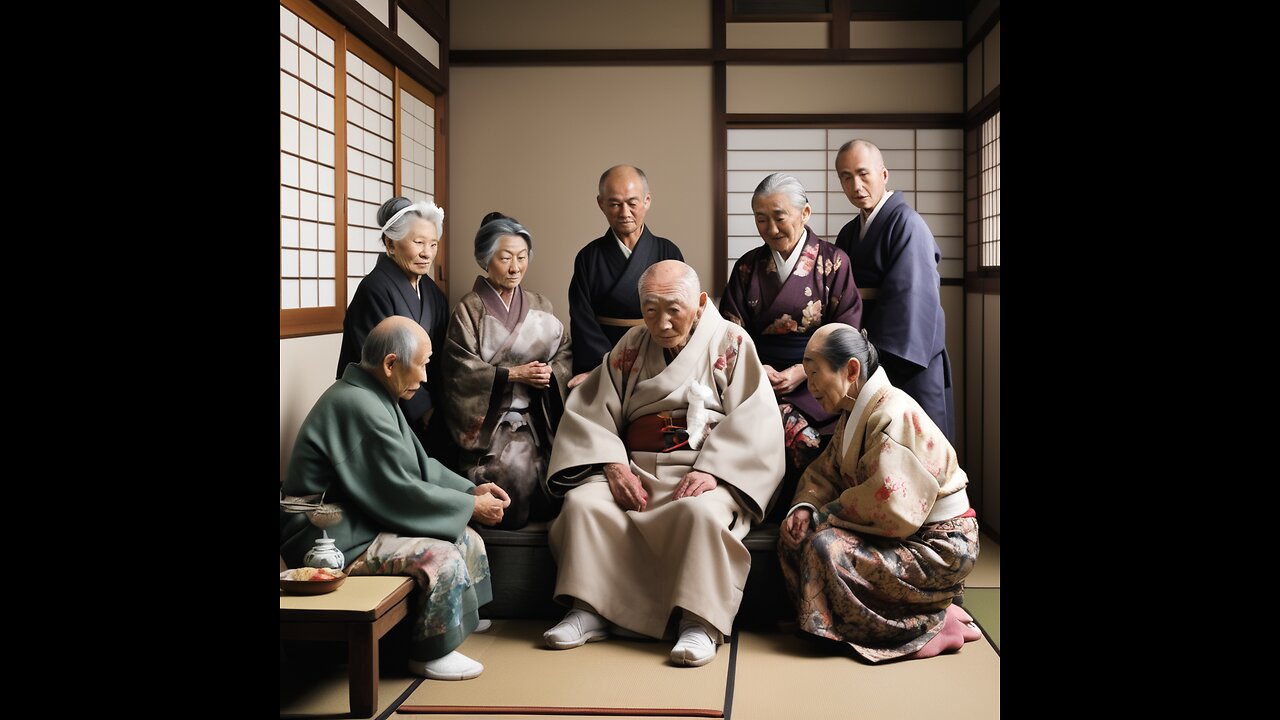Premium Only Content

Dignity - 尊厳
Human dignity is a fundamental principle that should be upheld in all aspects of life, including medical policies and practices. Sacrificing human dignity for the sake of global medical policies can lead to abuses of power, violation of individual rights, and the perpetuation of inequality. It is essential to ensure that medical policies prioritize the well-being and autonomy of individuals, respect their rights to informed consent, and promote equitable access to healthcare services. By placing human dignity at the center of medical policies, we can create a more just and compassionate healthcare system that serves the needs of all individuals.
The Scientific Method, a systematic approach to investigating phenomena and acquiring new knowledge, has its roots in the works of various scholars, including Catholic clergy. The development of the method is often attributed to individuals like Roger Bacon, a 13th-century Franciscan friar who emphasized the importance of empirical observation and experimentation in understanding natural phenomena. Other notable contributors from the Catholic Church include Robert Grosseteste, a bishop and philosopher, and William of Ockham, a Franciscan friar and theologian. These scholars played a significant role in shaping the foundations of modern scientific methodology.
Pope Francis has repeatedly emphasized the importance of human dignity and the need to protect it, particularly in the face of various global challenges. He has spoken about the need to prioritize human dignity over economic and political interests, and to promote social justice and solidarity. The Pope has also stressed the importance of respecting the inherent worth and rights of all individuals, regardless of their race, religion, or social status. In his teachings and actions, Pope Francis has consistently advocated for the protection of human dignity as a fundamental principle of Catholic social doctrine.
===============
人間の尊厳は、医療政策や医療行為を含め、人生のあらゆる側面において守られるべき基本原則です。グローバルな医療政策のために人間の尊厳を犠牲にすることは、権力の濫用、個人の権利の侵害、不平等の永続化につながりかねません。医療政策が個人の幸福と自律を優先し、インフォームド・コンセントの権利を尊重し、医療サービスへの公平なアクセスを促進することが不可欠です。人間の尊厳を医療政策の中心に据えることで、すべての人のニーズに応える、より公正で思いやりのある医療システムを構築することができるのです。
科学的方法は、現象を調査し新しい知識を得るための体系的なアプローチであり、そのルーツはカトリック聖職者を含む様々な学者の業績にあります。この方法の発展は、13世紀のフランシスコ会修道士で、自然現象を理解する上で経験的な観察と実験の重要性を強調したロジャー・ベーコンのような人物に起因することが多いとされています。カトリック教会からは他に、司教で哲学者のロバート・グロッセステスト、フランシスコ会修道士で神学者のウィリアム・オブ・オッカムなどが貢献しています。これらの学者たちは、近代科学の方法論の基礎を形成する上で重要な役割を果たしました。
教皇フランシスコは、特に様々なグローバルな課題に直面する中で、人間の尊厳の重要性とそれを守る必要性を繰り返し強調してきました。経済的、政治的利益よりも人間の尊厳を優先し、社会正義と連帯を促進する必要性を語ってきました。教皇はまた、人種、宗教、社会的地位にかかわらず、すべての個人の固有の価値と権利を尊重することの重要性を強調しています。教皇フランシスコは、その教えと行動において、カトリックの社会教義の基本原則としての人間の尊厳の保護を一貫して提唱してきました。
-
 LIVE
LIVE
Lofi Girl
2 years agoSynthwave Radio 🌌 - beats to chill/game to
286 watching -
 LIVE
LIVE
BBQPenguin_
2 hours agoTasking & PVP
41 watching -
 LIVE
LIVE
FrizzleMcDizzle
3 hours agoGladius, Creature of the Night - NEW NIGHTLORD - NightReign
18 watching -
 8:31
8:31
MattMorseTV
1 day ago $1.48 earnedTexas just did the IMPOSSIBLE.
64.1K88 -

Rotella Games
19 hours agoGreen Hell Day 6 | We Have a LONG Way to Go
12.8K4 -
 41:26
41:26
The Mel K Show
6 hours agoMel K & Clay Clark | Financial Success Hides Behind Self Discipline: Five Pillars | 8-24-25
31.9K3 -
 LIVE
LIVE
The Rabble Wrangler
14 hours agoThe Best in the West Plays Battlefield 2042 | Road to BF6 Grind
23 watching -
 2:29:17
2:29:17
JTtheSG
3 hours agoLIVE Replay - Back To The Deadzone!!!
13.8K -
 LIVE
LIVE
The Official Steve Harvey
13 days ago $5.14 earned24 HOURS OF MOTIVATION w/ STEVE HARVEY
230 watching -
 25:56
25:56
DeVory Darkins
23 hours ago $0.86 earnedTrump drops ULTIMATE BOMB on Democrat Mayors as ICE makes SHOCKING Announcement
52K188